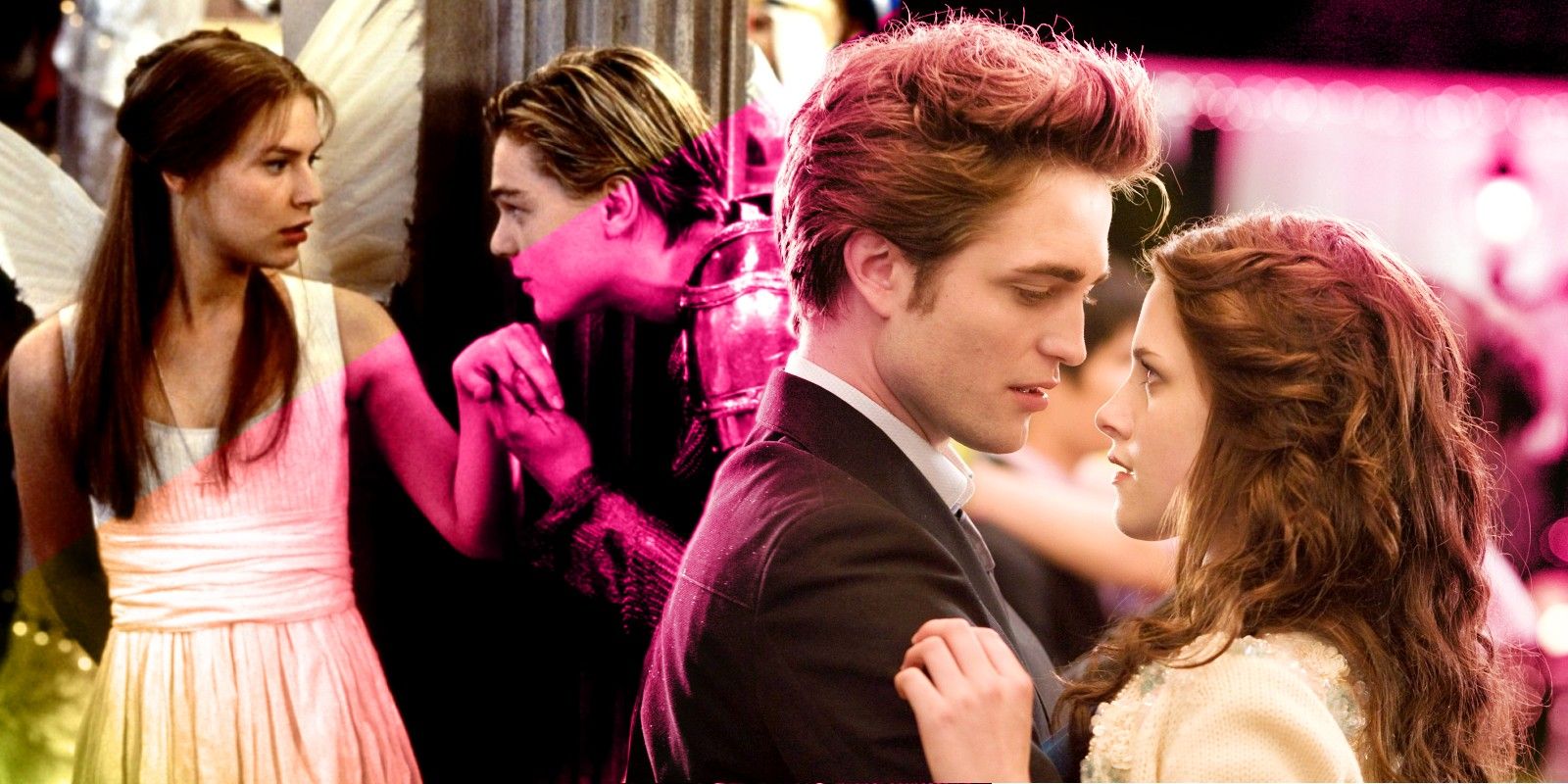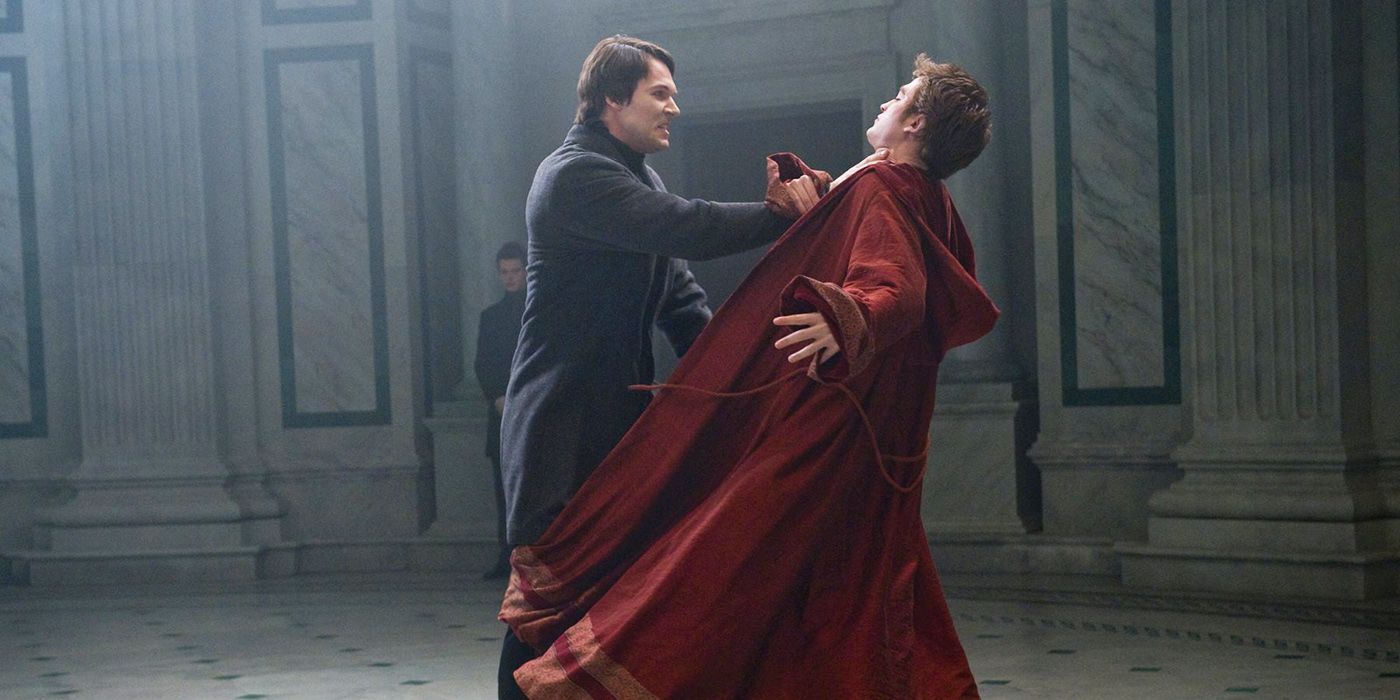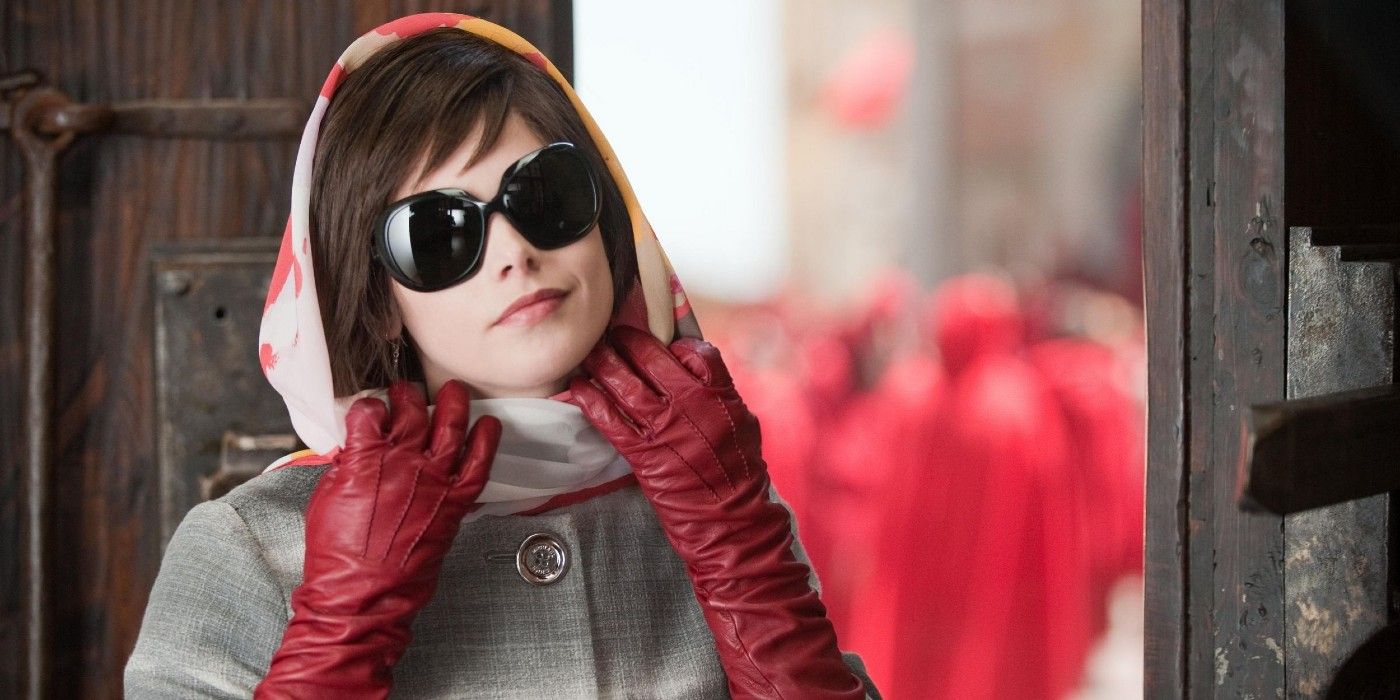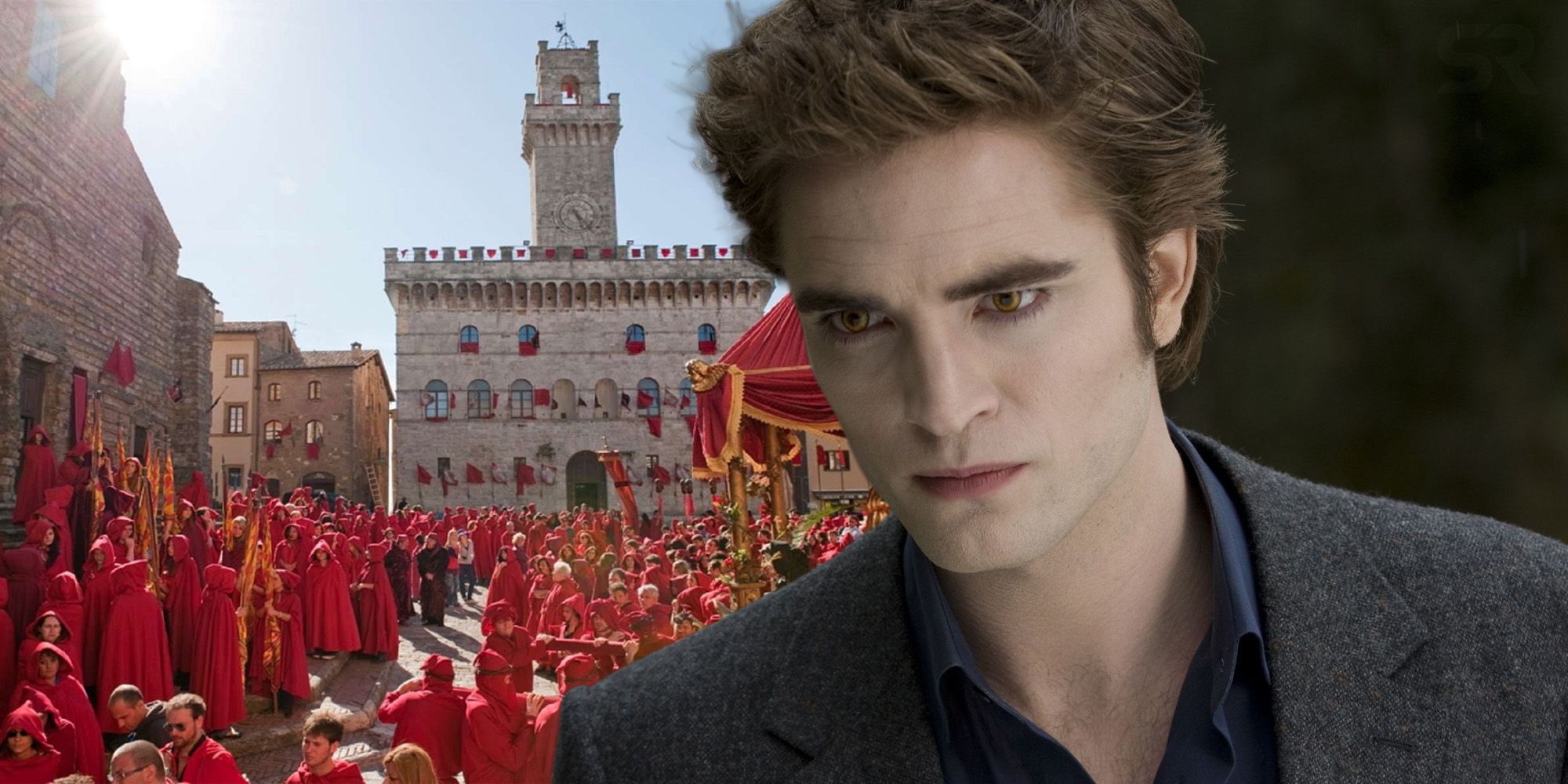Series creator Stephenie Meyer may claim that New Moon is based on Romeo & Juliet, but how much does the second Twilight novel (and movie adaptation) really resemble Shakespeare’s play? Released in 2008, Twilight was the first in a series of blockbuster teen fantasy romance movies based on the novel series of the same name by author Stephenie Meyer. The Twilight movies fared well with audiences but suffered in terms of critical reception. 2009’s first sequel, New Moon, was singled out as the least-lauded of the lot.
The reasons for New Moon’s comparative critical failure are numerous. For one thing, original Twilight director Catherine Hardwicke was not rehired for the sequel, and the follow-up film lacked her deft ability to ground the more absurd story elements with a stylized, moody tone. For another, the uneven tone of the story made New Moon both too dark and too broadly humorous at different points in the story.
However, not all of the fault lay with the filmmakers here. According to Stephenie Meyer, the second Twilight novel (and subsequent movie) New Moon was based on Shakespeare’s famous play, Romeo & Juliet. However, that tale famously ended with both its eponymous hero and heroine dead due to a tragic misunderstanding, while Meyer’s Twilight series did not kill off either of its central characters in New Moon. With Bella and Edward back only a year later for the next Twilight installment, the still-underrated Eclipse, this led viewers to the inevitable question of exactly what Meyer’s story did borrow from Shakespeare, and where exactly the comparisons end?
Twilight’s Romeo and Juliet Influence Explained
According to Meyers, Romeo & Juliet, along with Wuthering Heights, was one of the classics that the original Twilight novels were based on. Meyers said that New Moon was inspired by Shakespeare’s play while the next sequel Eclipse took its love triangle story from Bronte’s novel, but the comparison is harder to see in the former case. Bella refers to Edward as her Romeo in her narration numerous times throughout the series but in terms of story, the biggest borrow from Shakespeare in New Moon is the Volturi subplot. Unlike Twilight’s Wuthering Heights influence, though, this reference changes a lot of the context and is not all that similar to the source play. That said, in fairness to Meyer’s claims, the way in which Bella and Edward immediately fall in love upon meeting is arguably similar to Shakespeare’s classic story of doomed romance.
How New Moon Borrows From Romeo & Juliet
The warring factions of werewolves and age-old vampires splitting Forks (and Bella’s allegiance) in New Moon owe an obvious debt to the two fighting families in Romeo & Juliet, the Montagues and the Capulets. However, it is important to note that the werewolves are not Bella’s family, so the comparison isn’t perfect as they have no claim to her and no leg to stand on in telling her not to be with Edward. The Quileute tribe does welcome Bella into their community in New Moon but it is Edward who distances himself from her beforehand, whereas Shakespeare’s story sees the family forbid Juliet from seeing Romeo. However, the fact that Edward believes that Bella has committed suicide and chooses to do the same by visiting the Volturi directly borrows from Shakespeare’s ending, although Meyers opts to change how this denouement plays out so that the story is a little less tragic and a lot more sequel-friendly.
How New Moon Changes Shakespeare’s Story
Since there were two more stories to film after New Moon, the second Twilight movie ends with neither lover dead instead of both. Thanks to a classic Twilight plot hole courtesy of Alice Cullen, Bella manages to intervene in time, unlike Shakespeare’s tragic heroine. However, this newly happy ending is not the only detail that Meyers changes from Romeo & Juliet’s ending. The fact that Edward attempts suicide via a vampire authority instead of accidentally killing a Tybalt stand-in means that the plot diverges a lot from the play it was supposedly inspired by. For the two stories to be similar, Edward would need to kill a character like Jacob Black or another one of the werewolves, and Bella would need to be one of the werewolves herself instead of just a close friend of theirs. Alternatively, New Moon could have followed the lead of Paramount’s canceled Twilight adaption and killed off Bella’s father Charlie since, while Juliet’s father does not die in Shakespeare’s play, he is one of the most consequential characters to get between the young star-crossed lovers and ensure they never end up happy ever after.
Why New Moon’s Changes Ruined The Movie
While Shakespeare remains one of the most influential writers in existence, creators have been altering, parodying, retelling, and subverting his stories for centuries now. As such, it should come as no surprise that Twilight’s New Moon changes Romeo & Juliet as much as it sticks to the script, meaning many fans might reasonably why it matters that the movie and novel opted to mess with the original play. The answer is that, while changing Shakespeare’s text is pretty standard for modern adaptations, New Moon’s changes sap the story of narrative momentum. The biggest change between the original Twilight movie and New Moon is the lack of significant emotional and physical stakes for the main character’s stories, with viewers knowing that Edward would survive his encounter with the Volturi and Bella would be reunited with him due to the saga having another two sequels to adapt.
By making Bella friends with the werewolves (as opposed to a member of them, like Romeo & Juliet’s warring families), New Moon lessens the emotional impact of her choosing to pursue Edward over her allegiance to them. Similarly, by ensuring that Edward survives his attempted suicide, New Moon guaranteed that the impact of the play’s famously brutal ending was softened and rendered toothless, leaving viewers with a non-story wherein no one of significance is hurt or harmed. Eclipse features a bloody climactic battle and even the original Twilight’s villain James kills numerous characters throughout the movie’s action, whereas New Moon opts to cut Shakespeare’s harsher story elements but fails to replace them with anything affecting or impactful. As a result, changing Romeo & Juliet's story made New Moon the most critically disliked Twilight movie.





